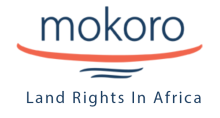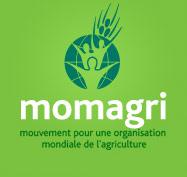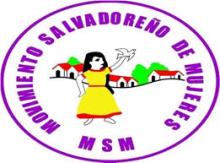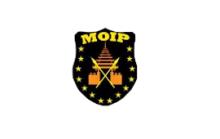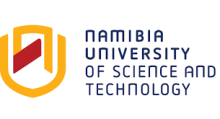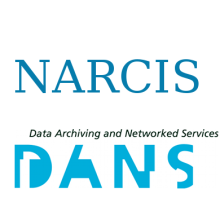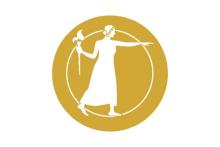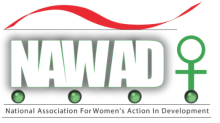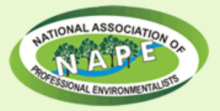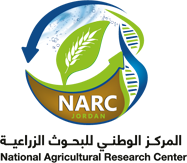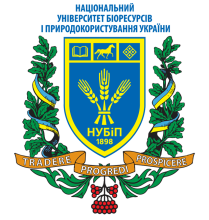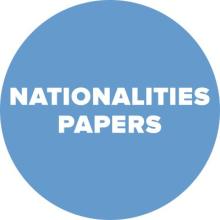A Biblioteca Land Portal inclui recursos de mais de 1.890 provedores de informações nacionais e internacionais. Saiba mais sobre as organizações e instituições que utilizam o Land Portal para partilhar as suas pesquisas, dados e histórias de acesso aberto.
Misereor
MISEREOR is the German Catholic Bishops’ Organisation for Development Cooperation. For over 50 years MISEREOR has been committed to fighting poverty in Africa, Asia and Latin America. MISEREOR’s support is available to any human being in need – regardless of their religion, ethnicity or gender.
Changes cannot be prescribed from outside. MISEREOR therefore believes in supporting initiatives driven and owned by the poor and the disadvantaged. This is because in MISEREOR’s experience it is they themselves who possess the strength to improve their lives sustainably. We support them in their efforts in accordance with the principle of help toward self-help. On the ground, projects are run by local organisations. This ensures that the project work is geared to the needs and way of life of the people involved.
Mo Ibrahim Foundation
The Mo Ibrahim Foundation (MIF) is an African foundation, established in 2006 with one focus: the critical importance of governance and leadership in Africa.
It is our belief that governance and leadership lie at the heart of any tangible and shared improvement in the quality of life of African citizens.
Leadership is about making choices, defining priorities, and taking risks.
Governance is about properly documenting and effectively implementing these choices.
Africa has made considerable progress over the last decade. However, the continent still faces a number of complex and massive challenges in most areas. How can it translate its wealth of resources into improved quality of life for its citizens, in an equitable and sustainable way? What should governments do to make sure that their GDP growth is matched by employment gains? Why are political and human rights still lagging in many areas, despite significant economic progress?
These challenges pose a threat to Africa’s success and potential transformation in the long-term. But all of these challenges can be met through sound leadership and governance on the continent.
African countries need to define a strategy – a ‘business plan’ – built on an inclusive vision which assesses and prioritises challenges, makes the best use of human, natural and financial resources and closely monitors results in order to ensure efficient and tangible implementation.
The Foundation, which is a non-grant making organisation, focuses on defining, assessing and enhancing governance and leadership in Africa through four main initiatives:
Ibrahim Index of African Governance (IIAG)
Ibrahim Forum
Ibrahim Prize for Achievement in African Leadership
Ibrahim Leadership Fellowships.
Mokoro
We are an international development consultancy working to improve the wellbeing and opportunities of poor and vulnerable people, by supporting sustainable economic and social development.
For more than 30 years we have provided consultancy and research for clients globally. Our technical services include evaluations and reviews and research, training, programme design, policy analysis and advice, in the areas of aid effectiveness, public policy and management, and land, livelihoods and natural resources. Our experience cuts across sectors, issues and disciplines; we believe strongly in the value of cross-learning that is facilitated by this multi-disciplinary approach.
Our excellence comes from our people. In addition to our core group of Principal Consultants, we have close relationships with a network of international and nationally-based Associates. This enables us to bring deep understanding of the contexts in which we work, and sensitivity to the particular circumstances of stakeholders at national and sub-national levels.
Our shared focus on poverty reduction underpins our strong ethical stance: we choose research and consultancy assignments that we believe will make real contributions to positive change.
Mokoro is a not-for-profit organisation, a company limited by guarantee under UK law. We are governed and run by our members and staff. We foster a high level of self-management and autonomy, based on mutual respect and a shared commitment to Mokoro’s vision and mission. All members, staff and consultants are encouraged to contribute to Mokoro’s corporate development.
Mokoro Land Rights In Africa
Mokoro is pleased to host the ’Land Rights in Africa’ site as a contribution to the land rights dialogue and related debates. This website was created in January 2000 by Robin Palmer, and was originally housed by Oxfam GB, where Robin worked as a Land Rights Adviser. A library of resources on land rights in Africa – with a particular focus on women’s land rights and on the impact of land grabbing in Africa – the portal has been well received by practitioners, researchers and policy makers, and has grown considerably over the years. Since 2012, Mokoro has been hosting and maintaining the site.
The views expressed on the Land Rights in Africa site as well as the publications hosted there, are those of the authors and do not represent those of Mokoro. Wherever possible, we link to the source website of publications.
Molecular Diversity Preservation International
Molecular Diversity Preservation International (MDPI), an organization for deposit and exchange of molecular and biomolecular samples, was active in 1996-2010.
momagri
Momagri est un think tank présidé par Christian Pèes, qui rassemble des responsables du monde agricole et des personnalités d’horizons extérieurs (santé, développement, stratégie et défense,…). Son objectif est de promouvoir une régulation des marchés agricoles en créant de nouveaux outils d’évaluation (modèle économique, indicateurs,…) et en formulant des propositions pour une politique agricole et alimentaire internationale.
Mountain Research and Development
The overall mission of Mountain Research and Development is to foster sustainable development in mountains by supporting peer-reviewed interdisciplinary, disciplinary, and transdisciplinary research on mountains, developing scientific capacity, capitalizing on development experiences, promoting policy dialogue, and strengthening networks within the mountain community. Mountain Research and Development (MRD) is devoted to mountains and their surrounding lowlands – ecoregions of particular global importance, in which communities are often marginalized. MRD seeks to present the best in recent research on and development approaches in the world’s mountain systems. Papers are peer-reviewed and offer internationally and nationally relevant research on key topics relating to mountains, mountain people, and sustainable development in mountains; book reviews are written by acknowledged experts, and institutional members of the International Mountain Society (IMS) present information about their mountain initiatives and priorities. MRD provides open access to all of its content on the principle that making research freely available to the public, especially to developing countries, supports a greater global exchange of knowledge. Open access leads to increased readership beyond the international mountain community, thus increasing the benefit of experience in sustainable mountain development presented in MRD. Open access also results in increased recognition and citation of authors’ work.
Movimento dos Trabalhadores Rurais Sem Terra
O Movimento Sem Terra está organizado em 24 estados nas cinco regiões do país. No total, são cerca de 350 mil famílias que conquistaram a terra por meio da luta e da organização dos trabalhadores rurais.
Mesmo depois de assentadas, estas famílias permanecem organizadas no MST, pois a conquista da terra é apenas o primeiro passo para a realização da Reforma Agrária.
Além disso...
Sabemos que a solução para estes problemas só será possível por meio de um Projeto Popular para o Brasil - fruto da organização e mobilização dos trabalhadores e trabalhadoras. E confiamos que a realização da Reforma Agrária, democratizando o acesso à terra e produzindo alimentos, é nossa contribuição mais efetiva para a realização de um Projeto Popular.
Por isso, o MST participa também de articulações e organizações que buscam transformar a realidade e garantir estes direitos sociais. Nacionalmente, participamos do Fórum Nacional da Reforma Agrária, da Coordenação dos Movimentos Sociais e de campanhas permanentes ou conjunturais. Internacionalmente, somos parte da Via Campesina, que congrega os movimentos sociais do campo dos cinco continentes.
Movimiento Regional por la tierra y el territorio
Tradicionalmente el desarrollo rural remite a conceptos como pobreza, expulsión, insatisfacción de necesidades, marginamiento, desnutrición, inviabilidad, insostenibilidad, etc. Es preciso reconocer que esta lectura se ha convertido en un discurso reiterativo y rígido que funcionaliza al desarrollo rural a un tipo de política pública que subestima y relega la vida en el campo.
El Movimiento Regional por la Tierra y el Territorio nace en reacción a estos enfoques y prácticas, proponiendo una renovada mirada de lo rural.
El Movimiento es una iniciativa que contribuye de manera complementaria a las agendas reivindicativas de las organizaciones campesinas e indígenas y al debate por la vida rural, los recursos naturales y la soberanía alimentaria frente al capitalismo, la expansión del latifundio y el agronegocio.
El Movimiento promueve un punto de vista nacido en el apego y retorno a la tierra, destacando buenas prácticas de acceso, control y producción que permiten vislumbrar alternativas que provienen del campo y con ello se pretende incidir en la agenda pública, en la sociedad rural y urbana, sobre la pertinencia de considerar el agro y la agricultura familiar campesina e indígena como una posibilidad cierta, dinámica, efectiva y exitosa.
Movimiento Salvadoreño de Mujeres
El MSM, en sus 28 años de existencia, ha venido construyendo trabajo planificado, organizado y sistematizado a través de proyectos enfocados a promover los derechos económicos, políticos, sociales, culturales y ambientales de las mujeres del campo y la ciudad.
En la lucha por los derechos de las mujeres, el MSM ha enfocado sus esfuerzos en tres ámbitos estratégicos: internacional, nacional y territorial. En el ámbito internacional y nacional, realizando gestiones con las agencias de cooperación para que apoyen las necesidades identificadas en los grupos de mujeres, así como la coordinación interinstitucional con otros organismos afines, cuyo propósito es luchar por los derechos de las mujeres. En el ámbito territorial, organizando a las mujeres en comités y asociaciones para que sean ellas las protagonistas en la implementación de los proyectos que se ejecutan en sus respectivas comunidades y al mismo tiempo sean capaces de gestion0ar, ante las autoridades locales, la solución a los problemas y necesidades que enfrentan.
Mtandao wa Vikundi vya Wakulima Tanzania
Mtandao wa Vikundi vya Wakulima Tanzania (MVIWATA) is a national farmers organisation which brings together small holder farmers from all regions of Tanzania in order to have a common voice to defend economic, social, cultural and political interests of smallholder farmers. Founded in 1993, MVIWATA aspires to empower smallholder economically and socially farmers through capacity building and undertake lobbying and advocacy especially by strengthening their groups and networks, facilitating communication and learning so that they are capable of defending their interests.
MVIWATA was founded by 22 innovative farmers from Dodoma, Iringa, Kilimanjaro, Mbeya, Morogoro, Tanga and Rukwa regions for the purpose of creating a farmer-to-farmer exchange forum as a means of enhancing communication among smallholder farmers. Sokoine University of Agriculture (SUA) through its Strengthening Communication Project (SUA-SCOM) guided the initial process in the formation of MVIWATA.
Literally, MVIWATA is Swahili an acronym for the National Network of Small-Scale Farmers Groups in Tanzania.
It was registered in 1995 under the Society Ordinance Act (Registration number SO 8612). In 2000 MVIWATA was registered as a Trust Fund under the Trustees Act of 1956. Following the introduction of the Non-governmental Act of 2002, MVIWATA was received a compliance certificate in 2007. Under this Act, MVIWATA is a non-profit private organisation. The national office of MVIWATA is situated in Morogoro town.
Our Goal:
To unite smallscale farmers (including all small holder producers, whose livelihood depend on land such as pastoralists and fisher folks) in order to defend their interests and address together the challenges of farmers.
Our mission:
To strengthen farmers’ groups and networks, facilitate communication and learning among farmers for the purpose of defending the interests of small scale farmers.
Our vision:
To become a strong national farmers’ organisation that will guarantee small-scale farmers’ participation
“Mtetezi wa Mkulima ni Mkulima Mwenyewe”
The slogan of MVIWATA is Mtetezi wa Mkulima ni Mkulima Mwenyewe literally means the defender of a farmer is the farmer.
This slogan underlines the philosophy of MVIWATA that farmers are the first change agents of their own lives!
MVIWATA was formed to address challenges facing smallholder farmers such as lack of a strong organisation of small scale farmers in the country, exclusion of small scale farmers from decision making process on matters that touch the welfare of small scale farmers and under-representation or complete lack of representation of small scale farmers in decision making bodies, low prices of agricultural produce, unreliable markets and lack of access to financial services. To address these challenges, MVIWATA has been implementing various interventions focusing on lobbying and advocacy and economic empowerment of small-scale farmers. These interventions are based on the five years Strategic Plan of MVIWATA (2010 – 2014).
Mujer Migrante
El portal Mujer Migrante es promovido por el Gobierno de México a través de la Secretaría de Comunicaciones y Transportes y la Coordinación de la Sociedad de la Información y el Conocimiento. Ofrece servicios de comunicación e información confiable y oportuna para mujeres migrantes y sus familias –en México y en el extranjero, principalmente en Estados Unidos, así como extranjeros establecidos o en tránsito por México, en particular de Centroamérica–, a fin de reducir los riesgos de su condición de doble vulnerabilidad: mujeres y migrantes
Mujeres rurales de Latinoamérica y el Caribe
Coalición internacional fundada en 1990 en Argentina y cuya coordinación internacional es atendida por dirigentes campesinas de Brasil, Bolivia, México, Nicaragua, Perú, Argentina, República Dominicana y Uruguay.
Muungano
The Muungano alliance represents the combined force of 3 organisations
1. Social movement: Muungano wa Wanavijiji, the Kenyan federation of slum dwellers
2. Fund: Akiba Mashinani Trust, the Kenyan urban poor fund
3. Support NGO: SDI Kenya, an NGO providing professional and technical support to the federation
Together, we work for slums to be improved and integrated into the city fabric. We work to influence changes in practice and policy – especially national policy for urban development. We negotiate, design, and deliver real improvements to people's lives. And we work with partners in academia, government, and civil society. We know that our unity is our strength.
We believe that slum communities should be at the centre of city and national development. Slums and slum residents are not an anomaly or problem, they are a vital part of the city and how it functions. Muungano volunteer to improve their settlements – challenging the idea that slum residents are only passive beneficiaries of city plans and development projects. Instead, Muungano offer to invest their own resources and help guide city investments, so that the social fabric of their communities is not lost in the changes made necessary by urban development.
The alliance has a central office in Nairobi and is affiliated with SDI, the biggest grassroots movement in the world.
Namati
Namati: Innovations in Legal Empowerment
Namati is an international organization that tests the potential of legal empowerment through innovative interventions and research. Through our work, we seek a better understanding of the impacts of legal empowerment and the most effective mechanisms for achieving them.
As a means of cultivating a more robust movement for legal empowerment, Namati also hosts a growing Global Legal Empowerment Network of practitioners and supporters. Network members are active in every continent in the world, whereas Namati’s programs and research focus on exploring the potential of legal empowerment in specific countries, including Sierra Leone, India, Liberia, Mozambique, and Uganda.
Mission: Building a movement of grassroots legal advocates
Namibia University of Science and Technology
Known for being a trendsetter in higher education and applied research internationally, the Namibian University of Science and Technology (NUST) aims to become the leading university in Africa. The Department of Land and Property Sciences (DLPS) offers relevant degrees at undergraduate and post-graduate level including master and doctorate degrees. The Department of Land and Property Sciences (DLPS) at NUST together with the Integrated Land Management Institute (ILMI) are playing a leading role in research and outreach in the field of land governance and administration.
The purpose of NELGA (Network of Excellence for Land Governance in Africa) is to enhance the role of selected African Universities and academic institutions in support of land policy development, implementation and monitoring. NUST was selected as a NELGA node for Southern Africa, because of its proven leadership and track record in academic education, training and research on land governance. To date NUST as a regional NELGA node has granted 6 scholarships (4 masters and 2 PhD’s) on land governance via the DAAD scholarship. The node is in the processes of identifying partner institutions for full implementation of the NELGA activities. One of the key work packages is to establish a regional node for NELGA Southern Africa.
Nanyang Technological University
A research-intensive public university, Nanyang Technological University, Singapore (NTU Singapore) has 33,000 undergraduate and postgraduate students in the colleges of Engineering, Business, Science, and Humanities, Arts and Social Sciences, and its Graduate College. NTU’s Lee Kong Chian School of Medicine was established jointly with Imperial College London.
National Academic Research and Collaborations Information System
National Academic Research and Collaborations Information System (NARCIS) is the main Dutch national portal for those looking for information about researchers and their work. NARCIS aggregates data from around 30 institutional repositories. Besides researchers, NARCIS is also used by students, journalists and people working in educational and government institutions as well as the business sector.
NARCIS provides access to scientific information, including (open access) publications from the repositories of all the Dutch universities, KNAW, NWO and a number of research institutes, datasets from some data archives as well as descriptions of research projects, researchers and research institutes.
This means that NARCIS cannot be used as an entry point to access complete overviews of publications of researchers (yet). However, there are more institutions that make all their scientific publications accessible via NARCIS. By doing so, it will become possible to create much more complete publication lists of researchers.
In 2004, the development of NARCIS started as a cooperation project of KNAW Research Information, NWO, VSNU and METIS, as part of the development of services within the DARE programme of SURFfoundation. This project resulted in the NARCIS portal, in which the DAREnet service was incorporated in January 2007. NARCIS has been part of DANS since 2011.
DANS - Data Archiving and Networked Services - is the Netherlands Institute for permanent access to digital research resources. DANS encourages researchers to make their digital research data and related outputs Findable, Accessible, Interoperable and Reusable.
National Academy of Sciences
The National Academy of Sciences (NAS) is a private, non-profit society of distinguished scholars. Established by an Act of Congress, signed by President Abraham Lincoln in 1863, the NAS is charged with providing independent, objective advice to the nation on matters related to science and technology. Scientists are elected by their peers to membership in the NAS for outstanding contributions to research. The NAS is committed to furthering science in America, and its members are active contributors to the international scientific community. Nearly 500 members of the NAS have won Nobel Prizes, and the Proceedings of the National Academy of Sciences, founded in 1914, is today one of the premier international journals publishing the results of original research.
National Agriculture and Forestry Research Institute (Lao)
The National Agriculture and Forestry Research Institute was established under the Ministry of Agriculture and Forestry to consolidate agriculture and forestry research activities within the country and develop a coordinated National Agriculture and Forestry Research System.
NAFRI is mandated to undertake integrated agriculture, forestry and fisheries research in order to provide technical information, norms and results which help to formulate strategy in accordance with government policies. NAFRI has four main functions including: carrying out adaptive research, developing methods, tools and information packages, providing policy feedback, and coordinating and managing research. Tasks that NAFRI are involved in include land-use planning and assessments of changes in forest cover and biomass.
National Association for Women’s Action in Development
National Association for Women’s Action in Development (NAWAD) is a voluntary non-governmental women’s organisation that was initiated by a group of women and legally registered in 2010 with the Ugandan NGO board (S. 5914/8366).
NAWAD is focused on the family and the crucial role women play in their families, their communities and the development of Uganda as a nation. Our goal is to promote the fundamental human rights of women and young people especially in relation to sustainable management of the environment and natural resources, health, and economic security. We recognize that there are a number of efforts addressing the challenges that confront women and young people; however, NAWAD is unique among women's organisations due to its focus on women and the environment along with the family and community as a whole. We at NAWAD believe that stable and peaceful families create stable and peaceful communities. We also feel strongly that to promote equal participation in decision-making for women, men and women must both be involved in the process of securing equal opportunities. We believe that “Putting Women at the Forefront” and encouraging men to work with them is the only way to develop stable families and communities and the best way to ensure that all Ugandans can realize their full potential. NAWAD’s community outreach activities are aimed at women’s and young people’s advancement for sustainable development and will therefore, make a significant contribution to the overall objectives of Uganda National Development Plan.
National Association of Professional Environmentalists
The National Association of Professional Environmentalists (NAPE) is an action organization committed to sustainable solutions to Uganda,s most challenging environmental and economic growth problems. We monitor government actions, conduct research, provide educational materials, develop science-based strategies, organize affected communities, make common cause with other civil society organisations and international organizations, and engage government officials at all levels.
It is an ambitious undertaking, but as lifelong Ugandans we cannot ignore what is happening to our precious homeland. While we stand ready to work with anyone committed to the public interest, we also will not allow powerful political or special interests to intimidate or silence us. We have done so since our founding in 1997.
We choose our actions carefully to use our skills and resources most effectively, addressing our most urgent challenges first, and expand our impact by involving like-minded organizations and individuals, and communities in need.
National Center for Agricultural Research and Extension (Jordan)
The mandate of the National Center for Agricultural Research and Extension (NCARE) is to conduct applied agricultural research and extension services in order to transfer improved technologies, facilitate continuous professional development, and recognize the significant professional contributions of its members. As a research arm of the Ministry of Agriculture, the Center is a semi-autonomous institution with funding from the Government of Jordan and other national and international donors. NCARE supports Jordanian agricultural research, focusing on soil and environmental, horticulture, and animal and plant protection sciences.
National Centre for Advocacy Studies (NCAS)
National Centre for Advocacy Studies (NCAS), set up in 1992, is a premier advocacy resource centre in South Asia. It is a proactive learning organisation that works towards participatory rights based and people-centered policy environment, a transparent and accountable governance and advancement of human rights. The core mandate of NCAS is to strengthen the capacity of marginalized people and social action groups to advocate on issues concerning their basic rights and social justice.
NCAS is a Society registered under the Maharashtra Societies Registration Act, 1860 and the Bombay Public Trust Act, 1950. It is a membership based organisation governed by the General Body of Members and Executive Committee.
NCAS has its own office premises in Pashan, on the outskirts of Pune with a desk at Bhubaneswar, Odisha.
National Land Commission
OUR VISION
Excellent administration and management of land for sustainable development
OUR MISSION
To implement an efficient land administration and management system in order to ensure equity in access to land
CORE VALUES
- Efficiency
- Transparency and Accountability
- Innivativeness
- Integrity
- Professionalism
- Rule Of Law
- Independence
MOTTO
“Our Land, Our Wealth, Our Heritage”
“Ardhi Yetu, Mali Yetu, Urithi Wetu”
National University of Life and Environmental Sciences of Ukraine
The National University of Life and Environmental Sciences of Ukraine is a leading public university in the field of agriculture in Ukraine; it is located in Kiev.
Established in 1898, prior to 1992 the institution was named the Ukrainian Agricultural Academy. In the years 1992–2008 it went by the name of National Agricultural University.
Source: Wikipedia (consulted d.d. February 21st 2018)
National University of Study and Research in Law, Ranchi
National University of Study and Research in Law (NUSRL) is a law university located in Ranchi, Jharkhand, India. It was established by a legislative act, by the State Of Jharkhand (act no. 4 of 2010) as the fourteenth national law university of India. B.C. Nirmal is the vice-chancellor of the university
Nationalities Papers
Nationalities Papers is the place to turn for cutting edge multidisciplinary work on nationalism, migration, diasporas, and ethnic conflict. The journal’s geographical emphasis is on Central, Eastern, and Southeastern Europe, Russia, Ukraine, the Caucasus, and Eurasia. Our mission is to feature both theoretical and empirical work, and review articles. We publish high-quality peer-reviewed articles from historians, political scientists, sociologists, anthropologists, as well as scholars from other fields.




